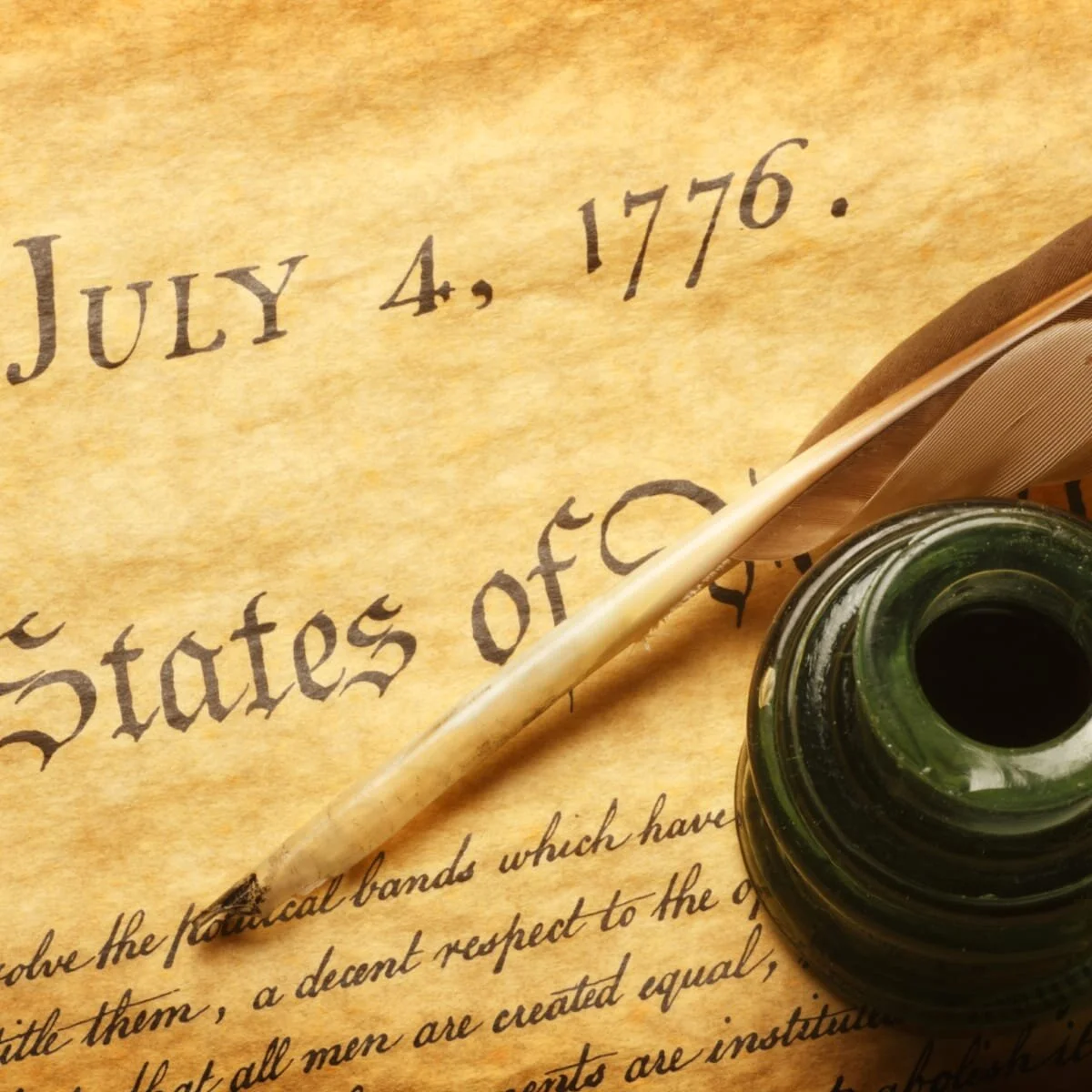One of my favorite ways to mark the Fourth of July is to listen to NPR’s annual reading of the Declaration of Independence. With a stirring musical backdrop and diverse voices, they bring the text to life with the urgency and determination of the day. It's a nine-minute listen and is worth your time. Thank of how those nine minutes shaped hopes and dreams around the world. I promise your time will be worth it!
Independence Day is a remarkable day. It is not just a celebration of the founding of an independent nation, but a declaration of values and aspirations that were (and still are) far from universally appreciated.
Independence Day is one of two national holy days in our liturgical calendar. The other is Thanksgiving Day. It is always right for a church to pray for the nation, but what does it mean to elevate a national holiday to the ranks of holy days commemorating key moments of our faith?
If we reduce Independence Day to a certain exceptionalism assuming that God has favored us over others, we miss the point. Likewise, we could also just wink and nudge that those who established the Episcopal Church as independent from the Church of England did so over beers with Thomas Jefferson, Ben Franklin, John Adams and all the rest! (It’s true, but that’s not the point!)
There is much in our national story that is not just an assertion of political postures, but of a fundamental understanding of human rights that flow from God. Like our faith, the Declaration of Independence is aspirational. It was not a declaration of what we have achieved, but a declaration of what we believe should be achieved, even at great personal risk, and to which we pledged ourselves as a united people.
Frederick Douglas, the former slave and most eloquent abolitionist of all time, began his speech "What to the Slave is the Fourth of July?" on July 5, 1852 with affirmation of respect for the ideals of our founders and their documents. Then, as only someone in his position could, he should how they were aspirational because they did not describe the country as it was then constituted. He concluded with the encouragement that we could still embrace those ideals and make them real for all people. Just like the Declaration of Independence, Douglass's full speech is a stirring read. NPR also gathered descendants of Douglass to read excerpts of this speech. It also is a stirring video that is affirming, challenging, and a call to double down on our ideals. It is confronting, but it is a call to patriotism as well.
Our faith is very much like rhythm of affirmation, challenge, and re-commitment. We make baptismal promises, affirm the Creeds, read Scripture, and say prayers that proclaim how we wish to be knowing that we are not always there yet. Thus, we also have confession. There is a reason we add the qualifier, "With God's help" to any promises we make. Only God can complete our efforts.
The United Stated has been called The American Experiment. I always thought the term originated with Ben Franklin, but I cannot verify that. It sounds like him, though! Any scientist will tell you that experiments do not always turn out the way one expects. And when they do not, we analyze and learn from the results and try again.
It is the same with our life of faith. We try, try, and try again. Because we can. Because we are not given just one chance, but an eternity of opportunity. Because God knows we are human and will stumble. Because God stands before us beckoning us to get up and try again.
To me, this is a great day to celebrate our origins, celebrate our aspirations, recognize our stumbles, and commit to getting up and try, try, try again. Each time we learn, we adapt and get a bit closer. Whether or not we ever get to perfection (we need to be honest, only God is perfect), the willingness to struggle, learn, and try again gets us closer. And that is both faith and patriotism in action. This is why I am a Christian, and this is why I am proud to be an American.
Blessings Always!
Dirk+

